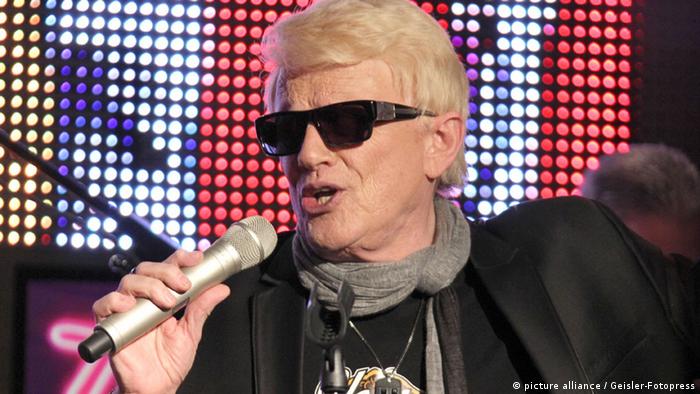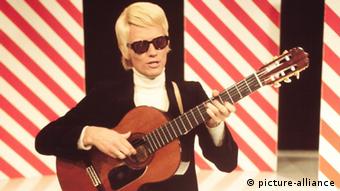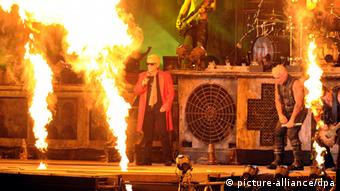Editorial
12 Years of Mayor Bloomberg
By THE EDITORIAL BOARD
Published: December 28, 2013 96 Comments
When he walked into the mayor’s office 12 years ago, businessman and
billionaire Michael Bloomberg took charge of a damaged city. The World
Trade Center was a windblown construction site, barely cleared after the
attacks on Sept. 11. Tourists were afraid to come to the city;
residents were afraid to stay. The budget was a disaster, $3 billion to
$5 billion in the red. In a modest speech
at an intentionally modest inauguration, Mr. Bloomberg nevertheless
pledged to rebuild and renew New York and to keep it “the capital of the
free world.”
Michael Bloomberg: Big Brother or Pioneer?
Was the departing mayor of New York City a public health innovator or a “nanny state” scold?
Readers’ Comments
Share your thoughts.
As he leaves office this week, Mr. Bloomberg has, in many ways,
fulfilled that promise. New York is once again a thriving, appealing
city where, Mr. Bloomberg boasts, more people are moving in than out.
More than 54 million tourists, the most ever, crowded the streets in
2013. The crime rate is down, the transportation system is more
efficient, the environment is cleaner. He leaves a $2.4 billion budget surplus, which could give the next mayor, Bill de Blasio, some flexibility in his negotiations with the unions.
Yet as Mr. de Blasio’s election showed, opportunity and prosperity have
been unevenly distributed. The homeless population has grown, and for a
great many others, the paychecks have been too small, the rents too
high. And in perhaps his worst mistake — authorizing a police practice
found unconstitutional by a federal court — Mr. Bloomberg and Police
Commissioner Raymond Kelly humiliated and alienated black and Hispanic
communities by having stop-and-frisk turn into a generalized method of
harassing law-abiding citizens.
On the plus side, one of his underappreciated accomplishments was to
make public service a valued vocation for a new group of urban experts.
Despite the occasional mistake, he hired mostly top-notch professionals
without political pedigrees, and challenged them to try new ideas.
With their help, he recaptured mayoral control of the schools, and with
it full responsibility for their performance. He rezoned almost half the
city, hoping to turn (and in some cases actually turning) industrial
deserts into sites for skyscrapers or residential housing — among them
Hunter’s Point South, with thousands of new affordable units, in Queens;
the Hudson Yards on Manhattan’s West Side (plus a new subway extension
to get people there); and the Greenpoint-Williamsburg complex in
Brooklyn.
He created a healthier city, where smokers are now taboo in many public
and private spaces, where calorie counts are publicized and where trans
fats are forbidden. He opened 800 acres of outdoor space, much of it
along the city’s shorelines, expanded bike lanes to cover more than 600
miles and added a fleet of Citi bikes for tourists and commuters. He
fought to reduce greenhouse gases, approved a balanced plan to dispose
of the city’s enormous waste stream, and, after initially rejecting
recycling as too costly, became a strong advocate of it. Using private
funds, including his own, he helped create new parks like the High Line
and the new greenway on Governors Island. After Hurricane Sandy, he
began updating building codes and created a long-range plan to help
defend the city against future storms.
The mayor’s team helped him in less dramatic but still useful ways.
There’s a new green apple taxi fleet for the outer boroughs and broad
pedestrian-friendly plazas on Times Square. He made it possible for a
splendid new high-tech university campus to be built on Roosevelt
Island. He established the 311 telephone number to help people with
routine problems like malfunctioning traffic lights, noise complaints
and questions about trash pickup on snowy days.
A master of numbers, Mr. Bloomberg displayed few political skills. His
unscripted comments, especially about the poor, can range from
thoughtless to heartless.
Mr. Bloomberg insists that crime has declined in part because of
stop-and-frisk, but crime has also declined in other cities that did not
make it a practice to stop law-abiding people. Between 2004 and 2012,
the police made an estimated 4.4 million stops seeking illegal weapons.
Half of all people stopped were frisked, but only 1.5 percent of frisks
found weapons, and only 12 percent of all stops resulted in any type of
summons or arrest. In August, a federal district judge ruled that this
indiscriminate use of stop-and-frisk was unconstitutional. Mr. de Blasio
has said he will not go forward with an appeal of that ruling.
Mr. Bloomberg’s efforts to modernize the city payroll became a scandal. By the end of the investigation,
eight people were convicted of cheating the city out of millions of
dollars. And his donations to political parties to gain favor and ballot
lines were an embarrassment, though not illegal.
The increase in the homeless population on his watch was not entirely
his doing; both Albany and Washington pulled the plug on necessary
programs. But Mr. Bloomberg aggravated matters by canceling a sound
public housing strategy, thus sending more people to the streets and to
homeless shelters. And while he can hardly be faulted for encouraging
greater investment, many New Yorkers — not least Mr. de Blasio — felt
that he unduly favored the banking and real estate interests and did not
do nearly enough to help the working poor and those at the bottom.
Over all, however, New York is in better shape than when he became
mayor. As Citizen Bloomberg moves on to private life, and takes on
various causes like gun control, immigration reform, climate change and
healthier cities, we can only wish him well.
紐約市長退休後,夢想仍不止步
2013年12月23日

Michael Appleton for The New York Times
10月,邁克爾·R·布隆伯格在市政廳的一次新聞發佈會上講話。布隆伯格的諮詢團隊將包括許多他最熟悉的助手。
紐約——決心將他的政府工作經驗和巨額財富轉化成一個全球市長的職位,邁克爾·R·布隆伯格(Michael R. Bloomberg)正在打造一個實力強大的諮詢團隊,來幫助他在卸任很長時間之後也能在世界各地改造城市。
布隆伯格將自掏腰包組建這個新機構,為此這位億萬富翁市長將帶走他市政廳團隊中的許多人:他已經雇了許多他最熟悉、合作時間最長的助手,承諾給他們一個機會,將他們在紐約發展成型的政策推廣到遙遠的肯塔基州路易斯維爾和墨西哥城等地。
- 檢視大圖
 Justin Sullivan/Getty Images喬治·A·費爾蒂塔(左)將管理邁克爾·R·布隆伯格新的諮詢團隊。
Justin Sullivan/Getty Images喬治·A·費爾蒂塔(左)將管理邁克爾·R·布隆伯格新的諮詢團隊。
對布隆伯格來說,這個項目將是他卸任市長職位後的第一階段的具體工作。助手們說,他在離職後仍將密切關注城市議題。長久以來,布隆伯格一直將城市看作是在公共衛生、經濟發展和環境可持續領域進行大規模探索的實驗室。
最重要的,這種新的嘗試也反映了一種極度的自信——這是該位市長從不曾缺少的東西——幾十個城市理所當然地應該複製他執政期間推出的標誌性政策:將繁忙的馬路改造成步行廣場、在連鎖快餐店張貼食物熱量表、為市民設立消費者服務熱線。
「我們了解到,其他城市有這種向紐約市學習的強烈需求,」布隆伯格執政團隊中負責城市規劃的阿曼達·M·伯登(Amanda M. Burden)表示,她已計劃加入布隆伯格的諮詢團隊。
「他擔任市長期間,」她補充道,「在如何辦事方面,紐約是眾多城市效仿的典範。」
這一機構將被命名為彭博合伙人公司(Bloomberg Associates),將作為一支城市化特攻隊,在受到地方政府邀請後,前去解決棘手的長期挑戰,譬如將一個不景氣的濱水區改造成閃閃發亮的公共空間,或是建設便於地鐵出行的居住社區。
但是和諮詢業的傳統經營模式不同,彭博合伙人公司將不會向客戶收費。
這一新團隊的許多情況都尚不明了。但是和布隆伯格在過去十年投身的多數事業一樣,它涉及的投資將會大得驚人,也不指望賺取任何利益。(年度預算將以千萬美元計。)
這一團隊就好像一個流亡政府。布隆伯格已經從他的政府至少
僱傭了六七個高級助手,包括交通局局長珍妮特·薩迪克-汗(Janette
Sadik-Khan)、媒體和娛樂局局長凱瑟琳·奧利弗(Katherine Oliver),以及文化事務局局長凱特·D·萊文(Kate D.
Levin)。
彭博合伙人公司將由紐約市旅遊局局長喬治·A·費爾蒂塔
(George A.
Fertitta)負責運營,在他任內,紐約今年創下了年度遊客增長的記錄,達到了5400萬人。費爾蒂塔在採訪中表示,這個團隊最終將擴充到20到25
名僱員的規模,其中多數將來自市長辦公室,他們將與布隆伯格龐大的慈善基金布隆伯格慈善基金會(Bloomberg
Philanthropies)緊密合作。(和慈善基金會一樣,這家諮詢機構也將在上東區一棟巨大的聯排別墅內辦公,那裡距布隆伯格家很近。)
布隆伯格從政壇新手到廣受敬仰的市長導師經歷了漫長的道路,而這個諮詢團隊則是其中最新的一章。許多市長紛紛前往紐約市政廳學習布隆伯格開放的牛欄式辦公布局,參加他關於城市創新的會議,並去申請他的基金會的資金(幾位曾去過那裡的市長將其稱為「市長學校」)。
布隆伯格的影響力已經無所不在,不論是從邁阿密到洛杉磯,還是從芝加哥到紐瓦克。
新奧爾良市市長米切爾·J·蘭德里歐(Mitchell
J.
Landrieu)回憶起去年從布隆伯格手上接過一筆400萬美元(約合2428萬元人民幣)的資金,用來從外部僱傭八位專家指導新奧爾良如何降低它的謀
殺率。自那時起,新奧爾良就創建了一支由多個部門人員構成的小組來打擊犯罪團伙活動,成立了一支午夜籃球聯盟讓青年男子遠離街頭,還採取措施讓那些被控槍
械犯罪的人更難走出監獄。
新奧爾良的謀殺率今年降低了17%。
「這多虧了他,」蘭德里歐這樣說起布隆伯格,「這個人把自己的錢用來投資,讓市政府能運轉得更好。」
布隆伯格行事謹慎,喜歡拿數字說話,他認為,投資城市從數
學角度具有合理性:世界上一半以上的人口居住在城市區域,在未來40年,這一數字預計將增加到70%左右。
城市越大,一個宏大的想法就更可能會引起人們的興趣,並被其他地方所採納,就像布隆伯格在餐館實施禁煙令和推出反式脂肪禁令後的情況一樣。
「偉大的城市會互相偷師,」布隆伯格市政府的前副市長愛德華·斯凱勒(Edward Skyler)說,他如今是花旗集團(Citigroup)的一位高管。
交通局局長薩迪克-汗說,當市長們得知打造單車道、步行廣場和慢速區域的花費和人員投入有多麼少時,他們常常都大吃一驚,而正是這些項目讓布隆伯格治下的紐約市街道煥然一新。
「你可以很快地以低廉代價來做出這些改變,」她補充道,「我們在這裡的成功可以經過調整在其他地方進行複製。」
彭博合伙人公司預計,自己會受到偏遠都市官員們的一定質疑,他們可能會對這種以紐約為中心的做法十分反感。「處理時需謹慎,」薩迪克-汗說,她的議程就曾不時在社區層面遭到強烈反對。
費爾蒂塔表示,這一團隊的業務將逐步拓展到安全、執法等新的領域。接近布隆伯格的一些人表示,他會很希望即將卸任的警察局長雷蒙德·W·凱利(Raymond W. Kelly)加入彭博合伙人公司,費爾蒂塔並沒有排除這種可能。
他說,這一機構將每年與四到六個城市合作。鑒於布隆伯格的名聲和慷慨大方,費爾蒂塔不認為找客戶會成為一個問題。
他預言道,「會有人在門口排起長隊。」
翻譯:曹莉Bloomberg Focuses on Rest (as in Rest of the World)
December 23, 2013
NEW YORK — Michael R. Bloomberg,
determined to parlay his government experience and vast fortune into a
kind of global mayoralty, is creating a high-powered consulting group to
help him reshape cities around the world long after he leaves office.
To build the new
organization, paid for out of his own pocket, the billionaire mayor is
taking much of his City Hall team with him: He has already hired many of
his best-known and longest-serving deputies, promising them a chance to
export the policies they developed in New York to far-flung places like
Louisville, Ky., and Mexico City.
For Mr. Bloomberg, the project is the first
concrete phase of a post-mayoral life that aides said would remain
intensely focused on cities, long viewed by him as laboratories for
large-scale experiments in public health, economic development and
environmental sustainability.
Above all, the new endeavor
reflects a profound confidence — never in short supply with this mayor —
that it would behoove dozens of municipalities to replicate the ideas
that defined his tenure: turning busy roads into pedestrian plazas,
posting calorie counts in fast-food chains, creating a customer-service
hotline for citizens.
“We have heard this huge
demand and need from other cities to learn from New York City,” said
Amanda M. Burden, the director of city planning in the Bloomberg
administration, who plans to join the consulting group.
“Under this mayor,” she added, “New York is the epitome that cities look to of how to get things done.”
The organization, to be
called Bloomberg Associates, will act as an urban SWAT team, deployed at
the invitation of local governments to solve knotty, long-term
challenges, like turning a blighted waterfront into a gleaming public
space, or building subway-friendly residential neighborhoods.
In a twist on the traditional business model of consulting, clients will not be charged.
Much about the new group is
still unknown. But as with most of Mr. Bloomberg’s undertakings over
the past decade, it will involve spending eye-popping sums of money with
no expectation of earning a profit. (The annual budget will run in the
tens of millions.)
The group resembles a
government in exile. Mr. Bloomberg has recruited at least half a dozen
top aides from his administration, including Janette Sadik-Khan, the
transportation commissioner; Katherine Oliver, the commissioner of media
and entertainment; and Kate D. Levin, the cultural affairs
commissioner.
Bloomberg Associates will
be run by George A. Fertitta, who as chief executive of the city’s
tourism agency oversaw a record increase in annual visitors to New York,
to 54 million this year. Mr. Fertitta said in an interview that the
group would eventually expand to about 20 to 25 employees, most of them
drawn from the mayor’s office, who will work closely with Mr.
Bloomberg’s sprawling charitable foundation, Bloomberg Philanthropies.
(Like the foundation, the consultancy will be housed inside a giant
townhouse on the Upper East Side, around the corner from the mayor’s
home.)
The consulting group is the
latest chapter in Mr. Bloomberg’s long journey from political neophyte
to much-admired mentor to fellow mayors, dozens of whom have flocked to
City Hall to study his open-seat bullpen layout, attended his
conferences about urban innovation and applied for grants from his
foundation (called “mayors’ school” by several city leaders who have
spent time there).
Mr. Bloomberg’s influence has already reached from Miami to Los Angeles, Chicago to Newark.
Mayor Mitchell J. Landrieu
of New Orleans recalled receiving a $4 million grant from Mr. Bloomberg
last year to hire a team of eight outside experts that advised the city
on how to lower its murder rate. Since then, the city has created a
multiagency team to combat gang activity, set up a midnight basketball
league to keep young men off the streets and pushed to make it harder
for those charged with gun crimes to get out of jail.
The murder rate in New Orleans has fallen by 17 percent this year.
“To his credit,” Mr.
Landrieu said of Mr. Bloomberg, “this guy is putting his personal money
into making city government work better.”
Mr. Bloomberg, a careful
student of numbers, argues that investments in cities make mathematical
sense: More than half the world’s population lives in urban areas, a
figure expected to surge to about 70 percent over the next 40 years. The
larger the city, the likelier that a big idea will catch fire and be
adopted elsewhere, as the mayor showed with his ban on smoking in
restaurants and trans-fats in foods.
“Great cities steal ideas
from each other,” said Edward Skyler, a former deputy mayor in Mr.
Bloomberg’s City Hall and now a top executive at Citigroup.
Ms. Sadik-Khan, the
transportation commissioner, said that mayors are routinely startled to
learn how little money and staffing are required to create the bike
lanes, pedestrian plazas and slower-speed zones that have remade New
York City’s streets under Mr. Bloomberg.
“You can make these changes
quickly and inexpensively,” she said, adding that “the success we’ve
had here can be tailored and replicated in other places.”
Bloomberg Associates
expects a measure of skepticism from officials in faraway metropolises
who may chafe at a New York-centric approach. “It requires sensitivity,”
said Ms. Sadik-Khan, whose agenda has stirred sometimes intense
neighborhood backlash.
Mr. Fertitta said the
group’s work could extend into new areas over time, like security and
law enforcement. Those people close to Mr. Bloomberg said he would be
eager to bring his departing police commissioner, Raymond W. Kelly, to
Bloomberg Associates, a prospect Mr. Fertitta did not rule out.
He said the organization
would try to work with four to six cities a year. Given the mayor’s
reputation and largess, Mr. Fertitta expects no problem finding clients.
“There will be people,” he predicted, “who will be lined up at the door.”




 103 Comments
103 Comments Peter O'Toole photographed in 163 (AP)
Peter O'Toole photographed in 163 (AP)
 Peter O'Toole (Rex Features)
Peter O'Toole (Rex Features)
 Tall, lean and blue-eyed: Peter O'Toole and Omar Sharif from the 1962 film
'Lawrence of Arabia
Tall, lean and blue-eyed: Peter O'Toole and Omar Sharif from the 1962 film
'Lawrence of Arabia
 IN PICTURES:
IN PICTURES: 











